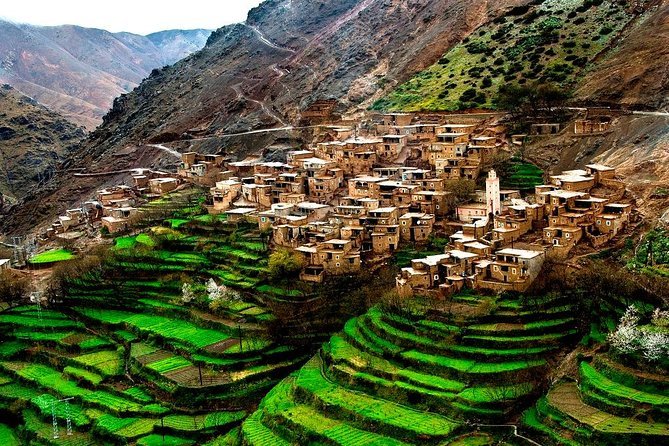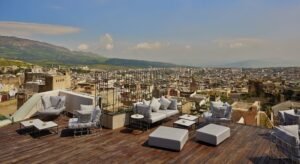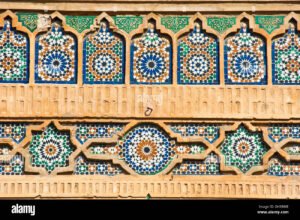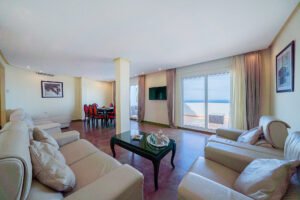Morocco Tourism Safety: Everything Tourists Need to Know
Morocco is a land of rich history, diverse landscapes, and vibrant culture. From the bustling souks of Marrakech to the tranquil beaches of Essaouira and the vast dunes of the Sahara, the country offers an unforgettable travel experience. However, when planning a trip, many travelers ask the same question: Is Morocco safe for tourists? The short answer is yes. Morocco is one of the safest countries in North Africa, with a government that prioritizes tourism security. Popular destinations such as Marrakech, Fes, Casablanca, and Chefchaouen are well-patrolled, and crime rates are relatively low. However, like any destination, Morocco requires awareness of cultural differences, local customs, and basic travel precautions to ensure a smooth and enjoyable experience. This guide provides a comprehensive overview of Morocco tourism safety, including practical safety tips, common scams to avoid, health precautions, and the best ways to navigate the country. Whether you're a solo traveler, a couple on a romantic getaway, or a family looking for adventure, this article will help you explore Morocco with confidence. We’re available anytime! Contact us on WhatsApp for instant assistance.1. Is Morocco Safe for Tourists? A Guide to Morocco Tourism Safety
Morocco is a politically stable country with a well-established tourism industry. The government has implemented strict security measures, especially in major cities and tourist areas. While violent crime is rare, petty crimes such as pickpocketing and scams can occur, particularly in crowded markets, public transportation, and busy tourist attractions. Most tourists enjoy a hassle-free trip as long as they take basic precautions. It is always advisable to stay in reputable accommodations, be mindful of personal belongings, and be aware of cultural norms to avoid unnecessary attention.Quick Safety Tips:
- Stay in well-reviewed hotels, riads, or resorts with good security.
- Avoid walking alone in deserted areas at night, especially in unfamiliar neighborhoods.
- Keep a copy of your passport and important documents in a secure place.
- Use hotel safes to store valuables such as passports, jewelry, and extra cash.
- Be cautious of overly friendly strangers offering unsolicited help or guidance.
2. Safe Destinations in Morocco
While Morocco is generally safe, certain destinations are more tourist-friendly due to their security measures and well-developed infrastructure.Marrakech
Marrakech is the tourism capital of Morocco, known for its bustling markets, historical landmarks, and lively atmosphere. While the city is safe, visitors should be aware of aggressive street vendors and persistent unofficial guides in the medina.Fes
Fes is home to one of the world’s oldest medinas, offering a deep cultural experience. However, the narrow streets of the medina can be disorienting, making it easy to get lost. Hiring a licensed guide is recommended.Casablanca
As Morocco’s economic hub, Casablanca is modern and relatively safe, with lower levels of tourist-targeted crime. Stick to well-lit areas and be cautious when using taxis.Essaouira
This coastal city is one of the safest and most relaxed destinations in Morocco. It is perfect for travelers looking to enjoy beaches, fresh seafood, and a laid-back atmosphere.Chefchaouen
Known as the "Blue City," Chefchaouen is famous for its peaceful ambiance and picturesque streets. Crime rates are low, making it an excellent destination for solo travelers and families.The Sahara Desert
Desert excursions are an incredible experience, but it's essential to book with reputable tour operators to ensure safety, proper transportation, and quality service.3. Common Tourist Scams & How to Avoid Them
Like any tourist hotspot, Morocco has its share of scams. Being aware of these tricks can save you money and frustration.Fake Tour Guides
Many unauthorized guides will offer to show tourists around, often leading them to shops where they earn commissions. Always hire guides through official tourism offices, hotels, or trusted tour agencies.Taxi Overcharging
Some taxi drivers refuse to use the meter and charge excessive fares. To avoid this, use registered taxis with meters or ride-hailing apps like Bolt or Careem.Fake "Closed" Attractions
Scammers may approach tourists near famous landmarks claiming the site is closed, offering an alternative "tour." Always verify information with hotel staff or official sources before making changes to your plans.Unsolicited Henna Application
In Marrakech’s Jemaa el-Fnaa square, some henna artists will grab tourists’ hands and apply henna before demanding payment. Politely refuse if you are not interested.4. Women’s Safety in Morocco
Morocco is a conservative country, and female travelers should be aware of local customs. While most Moroccan men are respectful, unwanted attention can occur, especially in busy tourist areas.Tips for Female Travelers:
- Dress modestly—long skirts, loose pants, and covered shoulders are recommended.
- Walk with confidence and avoid prolonged eye contact with strangers.
- If harassed, ignore and walk away—engaging can escalate the situation.
- In rural areas, wearing a headscarf may help blend in and reduce unwanted attention.
- Travel with a group or a licensed guide for added comfort.
5. Health & Hygiene: Staying Well in Morocco
Moroccan food is flavorful and rich, but it's important to take precautions to avoid foodborne illnesses.Food & Water Safety Tips:
- Drink bottled or filtered water—avoid tap water, ice, and unsealed drinks.
- Eat at busy restaurants with high turnover, ensuring fresh food.
- Wash fruits and vegetables before eating.
- Avoid uncooked street food unless it's freshly prepared.
6. Best Ways to Get Around Safely: Morocco Tourism Safety Tips
Morocco has a well-connected transportation system, but choosing the right mode of travel is crucial for a safe journey.Trains
The best option for intercity travel is the ONCF train system, offering safe, comfortable, and affordable transport. The Al Boraq high-speed train connects Casablanca to Tangier in just over two hours.Taxis
Always opt for official taxis and agree on a price before the ride if the meter is not used. Ride-hailing apps are a safer alternative.Buses
Companies like CTM and Supratours offer safe and comfortable bus services. Avoid using random private buses with no clear schedules.Car Rentals
While renting a car is an option, driving in Moroccan cities can be chaotic due to aggressive drivers and unmarked roads. It is best suited for rural and scenic routes rather than city driving.7. Essential Safety Planning Tips for a Worry-Free Experience in Morocco Tourism Safety
- Book accommodations in safe neighborhoods with good reviews.
- Keep emergency contact numbers saved on your phone.
- Exchange money at official exchange offices or ATMs inside banks.
- Download offline maps to navigate without internet access.
- Be aware of local customs, including prayer times, dress codes, and greetings.









